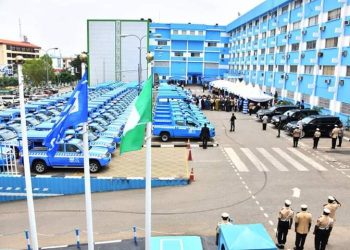At its first Monetary Policy Committee (MPC) meeting for the year, the Central Bank of Nigeria (CBN) last week retained its monetary policy rate (MPR) at 14 per cent for the 15th time since July 2016. The MPC, which is the highest decision-making organ of the CBN, also kept all key parameters at their current levels, with asymmetric corridor around the MPR at 2 percent/-5 per cent, Cash Reserve Requirement (CRR) at 22.5 per cent and Liquidity Ratio at 30 per cent.
None of the eleven members of MPC present at the meeting dissented. The apex bank explained that it retained the MPR primarily to check inflation, maintain the stability of the naira amid global and domestic risks, which could lead to our currency depreciation.
The Governor of the CBN, Godwin Emefiele, stressed that the MPC felt that any downward review of lending rate would result in loss of the gains so far achieved. Emefiele also argued that reviewing the existing MPR downward would worsen the position of the Non-Performing Loans (NPLs) of the banks. The Committee found that tightening the lending rate will dampen investment and hamper improvement in output growth.
Although the CBN have explained why it retained the MPR, we are not persuaded enough that the decision is favourable to economic growth. The exchange rate has not achieved the expected stability in recent times, despite huge injection of the dollar into the foreign exchange (FX) market. We are also mindful of the bleak economic outlook for 2019 because of global and domestic risks, the volatility in the international oil market, the trade war between the USA and its major trading partners and the uncertainty ahead of the 2019 elections. All the same, the refusal of the CBN to reverse course on MPR may stifle economic growth and hamper entrepreneurs and other businesses access to loans at affordable rate. At present, banks charge between 25 and 30 per cent interest on loans. Only a few business owners can borrow at this rate and make profit.
What this means is that the cost of borrowing will remain at the current levels and the slow growth of the economy will continue. According to the National Bureau of Statistics (NBS), Nigeria’s inflation rate, which has been in double digits for three years, rose to a 7-month high of 11.41 percent in December, from 11.28 per cent in November 2018. Therefore, in order to address the ensuing risks and tame inflation and the weak exchange rate, the CBN will continue to use the sales of government securities to influence interest rates and yields.
While we agree with the decision of the MPC that the Federal Government should be mindful of the implications of the nation’s increasing debt as it could be approaching the pre-2005 Paris Club exit level, the CBN should watch the downside negative implications of high interest rate and the cost of borrowing. We believe that retaining the MPR at 14 per cent will undo efforts to reduce the rising unemployment in the country. It will also not help plans to reinvigorate the real sector and diversify the economy. For the economy to meet the projected 2 per cent growth, there should be access to credit for productive purposes. The current lending rate of 14 per cent is a disincentive to borrowers.
Like many stakeholders, we believe that CBN should review downward the lending rate in the interest of the economy and borrowers. Nigeria’s lending rate is perhaps one of the highest in the world. At its last MPC meeting of 2015, the CBN announced that it had come to the end of its monetary tightening. Since then, it had retained the MPR at 14 per cent. We maintain that without reducing the interest rate, access to borrowing may be jeopardised.
Now that emphasis is on exports and diversification of non-oil sector of the economy, holding the MPR at the current level may not bring about the anticipated economic recovery. Moreover, the high interest rate may lead to capital flight and closure of more businesses that are already at the receiving end of government’s flip-flop policies. Above all, reducing the lending rate will be more beneficial to the economy.













































